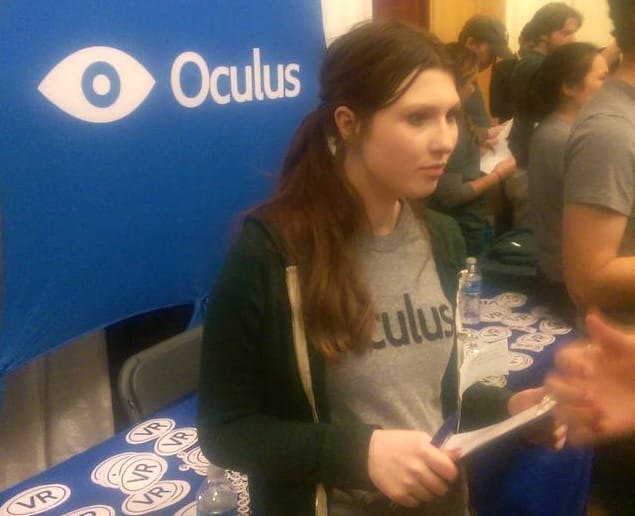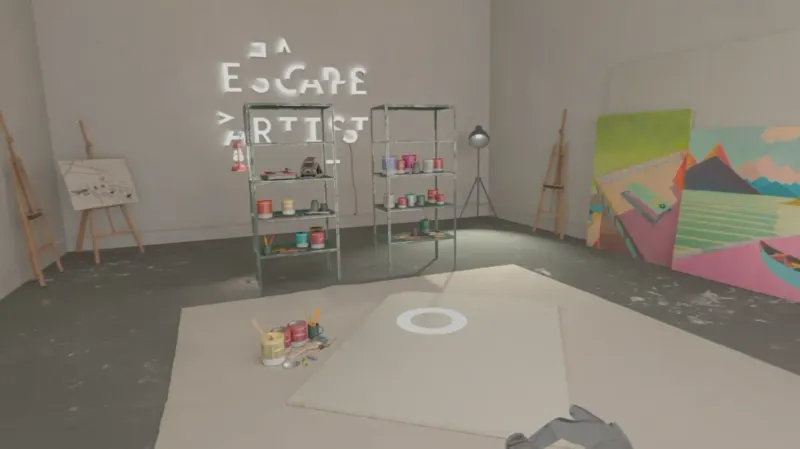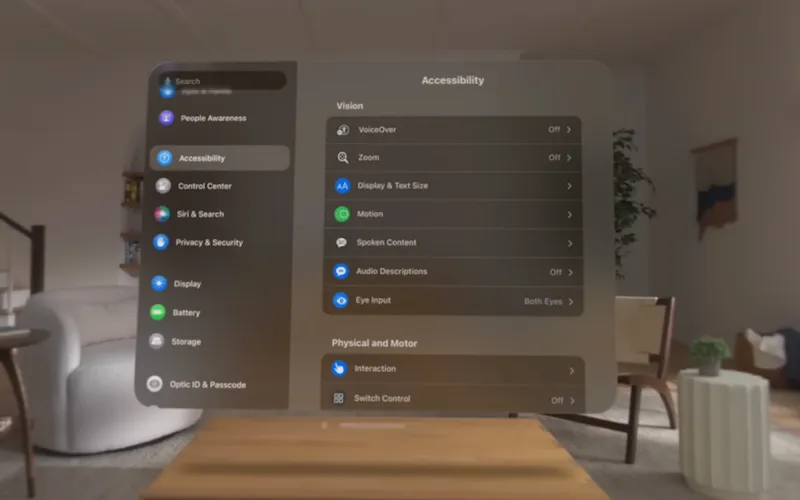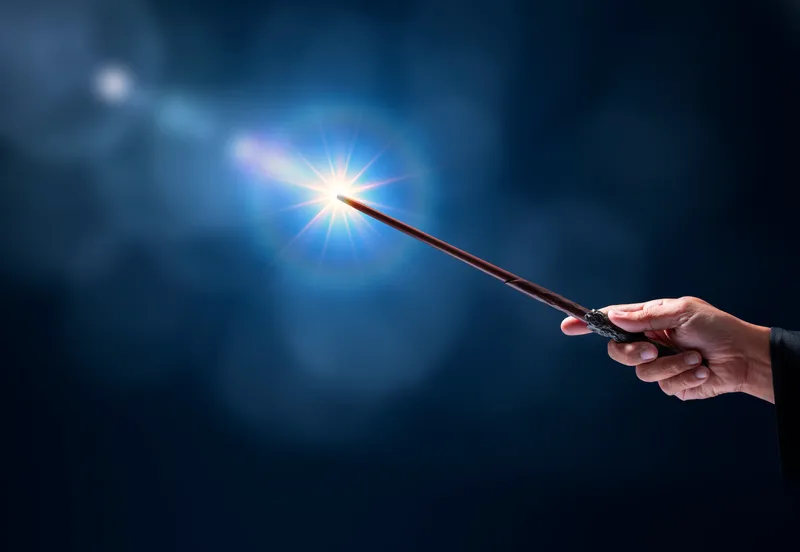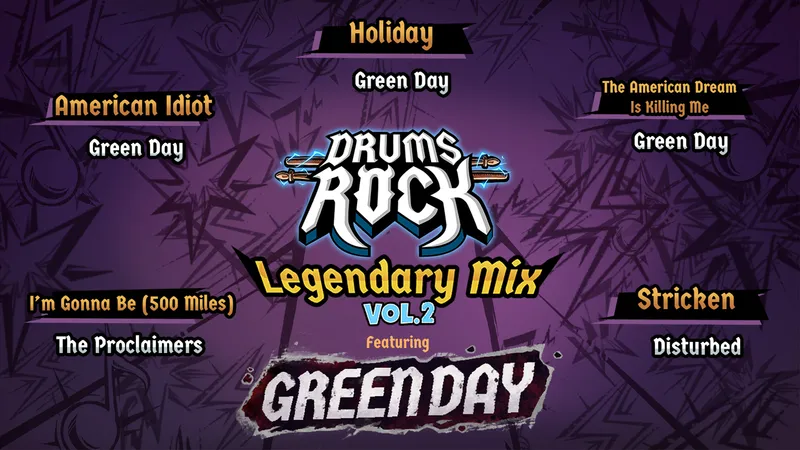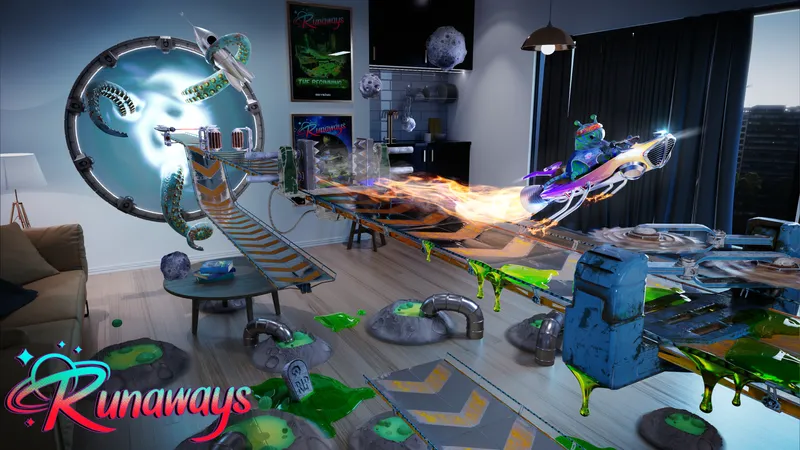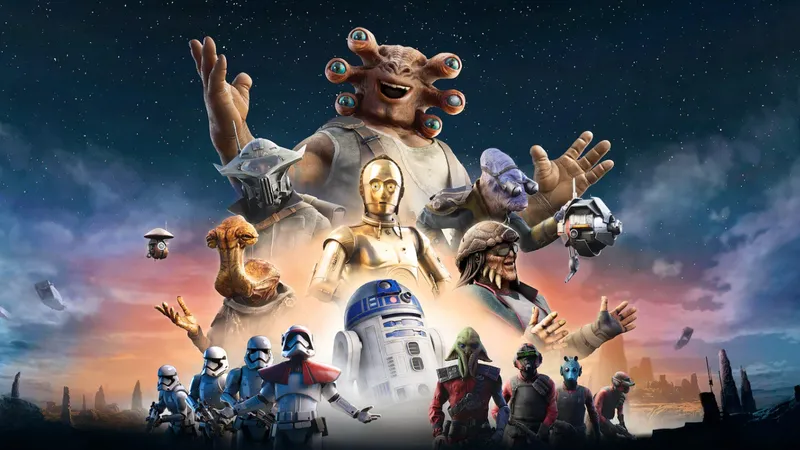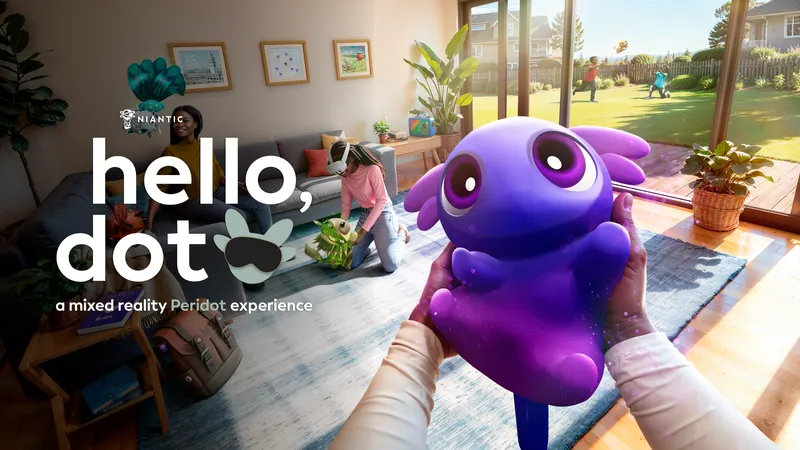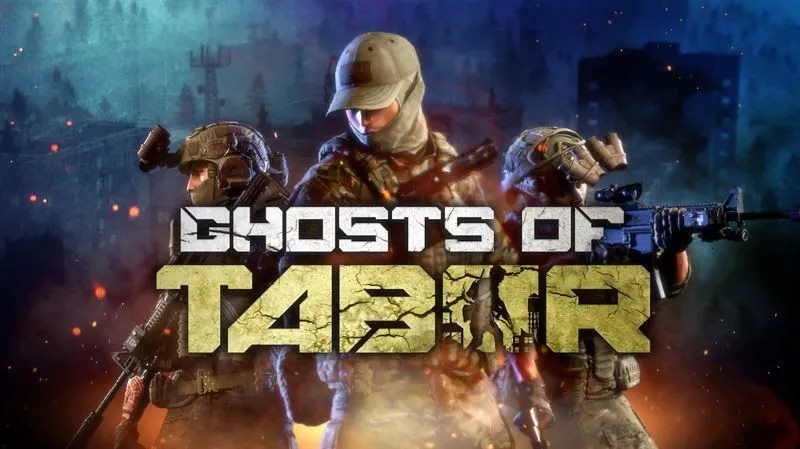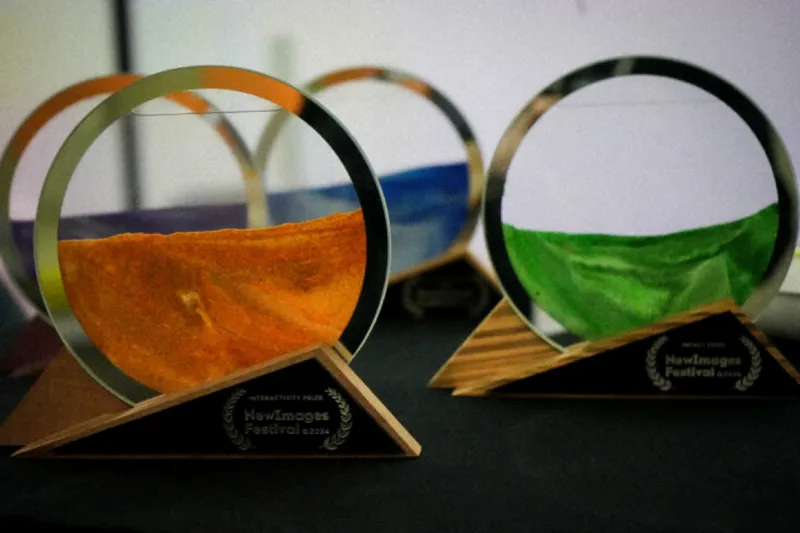Editor's Note: Amanda Watson joined Oculus VR in 2015 and took a cubicle outside John Carmack's office in Dallas where she worked late nights on the mobile SDK. Later in California, she worked on Oculus Link and Air Link before leaving Oculus in 2022. In early 2024, Watson released CitraVR on Github. This letter was written "as an apology I never sent" to Carnegie Mellon University for an incident that happened in her final year there in 2014.
To Whom It May Concern,
I know this probably comes to you a little late. I’m notorious for putting things off (as you may know by now), but I still feel compelled to send this note. I told the University I was willing to apologize to anyone our actions may have hurt, and I fully intended to do it. I hope that the time, if anything, helps give context to my note.
I don’t actually get to know the affected parties to whom this letter is addressed, so I’m going to cover my bases and outline exactly what this apology is about. Last fall, a friend and I spent some time in front of an empty booth at the Technical Opportunities Conference (TOC). We collected resumes from students, and the administration became concerned that, possibly, we may have been mistaken as recruiters for the company of that booth. It was then brought to our attention that, while we may have meant well, this created trouble for students attending the career fair, as well as the staff who were in charge of organizing the event. Something we never intended, and something we would of course be very sorry to have caused.
I now understand that actions and intentions are not really as relevant as impressions, reactions and consequences of what transpired. That said, as long as I’m here, I figure some of you wouldn’t mind hearing the full story, as I remember it. Not to excuse my actions, but to grant insight into what motivated my friend and I, and why I am truly sorry for what happened.
On the morning of the incident, I was at the TOC 20 minutes before it opened. Normally, I’m not nearly this much of a try-hard, and honestly, suit-wearing try-hards make terrible impressions in tech culture. Yet I was going to risk it because, more than anything else in the entire world, I wanted to work at Oculus VR. As a computer science and drama major with a background in high-performance graphics and systems design, there aren’t a lot of obvious career paths for me. Last spring, I listened to a talk given by Oculus researcher Michael Abrash, and, as he explained the types of engineers they were looking for, I heard him describe me. To me, Oculus VR seemed like my one shot at validation, at doing my thing and making new technology happen as a result.
Also, to be honest, I wasn’t doing very well in my regular-job search. Places I’d gotten internship offers from in past years were now turning me down in the last stages of the interviews. I don’t really know why. The ones I asked gave vague answers about my just not being a good fit. Maybe I sounded like a jerk? Honestly, if anything in this apology seems like the kind of personality flaw that would prevent employment, please let me know. All I can say is that I was starting to get scared and bitter. I built up this meeting with Oculus at the TOC to be my one shot at making things right. I told myself again and again that I was going to do whatever it took to get myself noticed – for which I am, in retrospect, very, very sorry.
Of course, when the doors finally open and I make my way to the Oculus booth, it’s totally empty. The signs aren’t up, the complimentary water bottles sit untouched in the middle of the table. To say this was a disappointment would be a gross understatement. For maybe an hour – well into my next class – I just paced the TOC, hoping Oculus would show up. Of course, as we now know, other than one small blip later in the day, the Oculus VR booth would remain unstaffed.
Finally, I gave up and headed to my next class. I was crushed. CMU has a strong alumni footing in most tech companies you’d want to work for, some pipeline for resumes outside of events like these. But not Oculus. Oculus is too new for me to really know anyone who could push a resume along. I knew that if I could just get my foot in the door they’d be interested, right? I was desperate to talk to someone, anyone with connections. Honestly, I might have loitered around even longer if I hadn’t figured my best chance for getting in touch with Oculus was going to be sitting next to me in my next class.
In theory, having a friend like George would be the perfect solution to a problem like mine. He’s like a minor celebrity in the tech world, and has all sorts of connections in silicon valley. He even knows Palmer Luckey, the guy who founded Oculus VR. But if you honestly thought this was going to be my salvation, you don’t know George very well.
“What, I’m just going to email Palmer and be like ‘yo, I know this girl, she’s talented, you should hire her’? No, of course I’m not going to do that. You’re not exactly John Carmack. What do you think I’m supposed to do?” George speaks with a strong, high-pitched Jersey accent, which I think amplifies the amused condescension in everything he says.
“I...I dunno, tell him to leave my resume under a door somewhere? I just need it to get to a recruiter, not the CEO.”
“Look, if we’re all ever in the same place, I’ll get us together some night, and the three of us will go drinking. But I’m not just going to send him an email out of the blue vouching for you.”
You know what? Fair enough. Having a direct line of communication to the company’s founder isn’t really a great way to get a job through honorable means. It was agonizing to be this close, though. I just needed an in. Somehow, I was going to get noticed.
It’s at this point where people start blaming George for what transpired. I try not to get too insulted by this. “Elite Hacker Gains Privileged Access to University Gym, Exposes Vulnerabilities in Career Fair Security” makes for a better head canon than my soppy rant about unemployment, certainly, and doesn’t require nearly this level of exposition. In truth, it was me, embittered with my futility and disappointment, who convinced George to come with me to visit the Oculus booth after class. Some of our classmates would later claim they heard George say to me as we were leaving, “wanna go to the Oculus Booth and impersonate some recruiters?”, but I maintain that this does not make sense and is not true.
When we arrived at the TOC this second time, the event was in full swing. The once-empty booths were now being mobbed by kids in suits, and so I hoped Oculus would be the same. Of course, when we arrived, there was no one there because they were never there because no one showed up. We wandered around the event for a couple minutes before finally planting in one of the TOC’s few free spaces – in front of the Oculus VR booth – to regroup.
That’s when I saw it: a pile of papers sitting at the back of the table I hadn’t seen before. “Hey, look at this!” I called to George.
“Yeah, so?”
“I don’t remember seeing this pile before.”
“No, I saw it from before. It’s probably the resumes of all the kids that wanted to see Oculus…You think the recruiters will come back to pick them up?”
“Honestly? They’re just gonna get thrown out at the end of the day.”
Damn. The only thing worse than not being in the pipeline is not knowing you’re not in the pipeline. Honestly, when I looked at those resumes, I felt a lot of sympathy for those other kids. Like me, they probably were desperate to talk to Oculus, and didn’t have another way to do so. They’d probably been as crushed as I was when they saw the empty booth. And now their resumes wouldn’t even be seen! I wished I knew something I could do for them -- for us.
It was at that moment one of the suited kids approached the booth, shook George’s hand and introduced himself. After a 20-second monologue about his education, research and career aspirations, he gave us a resume. It was surreal.
George was blindsided. “Sorry, I don’t actually work for Oculus VR. If you want, I can put this resume on the table behind me. That’s what a lot of students have been doing.”
It was THE most awkward moment. Suddenly, all of suit kid’s enthusiasm vanished, and was he just staring back at us, unsure of what he’d done wrong.
“If I put my resume on the table...it gets to Oculus?” “I’m honestly not sure.”
Hesitantly, he placed his resume on the pile and left. “That was fucking tragic” I mumbled only moments before I was greeted by a smiling suit girl of my own. In a tiny, tiny voice I could barely make out, she asked if we worked for Oculus. This time, I cut her off as quickly as possible, giving the same explanation George did. Like the last guy, she was confused. “But recruiters pick up these resumes at the end?”
“Honestly, probably not? But hey, don’t take my word for it.”
After some hesitation, she just shuffled away, deciding not to part with her resume.
George and I broke the weirdness with some laughter. It was amusing, honestly. But more than amusing, it was refreshing, too. I’d spent the entire morning worrying about what I would look like to these recruiters, how they’d judge me. Now, I was that recruiter, and it all seemed so low-key. The fear - my fear – I was seeing on student’s faces seemed so unnecessary, their posturing so...counterproductive. It was like I could see right through it, look past their spiel and know with deadly accuracy who was worth spending time on. I was seeing behind the curtain, and it felt great.
I don’t want to make it sound like what happened next was motivated by this indulgence or my desire to “play God.” Honestly, at no point did we make any plans for impersonation.
I simply said to George, “Hey. ‘We’ know people at Oculus, right?”
“Sure.”
“If these resumes are just going into the trash anyway, maybe we can do something. Collect them and send them off to Palmer or someone he recommends.”
George claims that he never agreed to this, and I guess it’s possible I made it all up. But in any case, he went ahead with the plan. We had more students come up and ask if we worked for Oculus. Each time, we would say no, and direct them to the pile of resumes on the table. This time, however, we also said we would try and forward them, because we knew people at Oculus who might be able to help. These students, while still confused, seemed a lot happier than the first ones. They handed us resumes, shook our hands, and wandered back into the bowels of the career fair.
Now I can imagine what it must have looked like: two geeky-looking types standing in front of an otherwise empty booth, shaking hands, saying words, collecting resumes. I can understand, then, why the line of students may have started to form in front of us. It’s worth pointing out, though, that it’s really a stretch to say we looked like recruiters. The signs and water bottles still sat on the table, no one stood behind the table the way recruiters usually do, and we weren’t even wearing name tags (at some point George picked up a sticker that said “Full-Time Positions” and stuck it on his chest, but that was hardly an attempt at impersonation – he’s just an idiot). There was literally no Oculus insignia anywhere – the only corporate logos on our persons were George’s Google sweatshirt and my Palantir book-bag. It’s been said that a line formed because students were being misled, but if you ask me, they didn’t see us as recruiters. Like me, they were desperate for any contact at all with this company, and wanted exactly what we had to offer: any chance at all at being in touch with Oculus VR.
Again, I don’t want to sound like I’m trying to make excuses for myself. Student Life informed us later that, even if our impersonation wasn’t particularly believable, we should be held accountable nonetheless for “wasting student time”, an offense that, while not actually against the rules, is an interesting idea for a rule and might be fun to cite now and again. This may also be one of the points where intent and consequence didn’t align, because honestly, I didn’t think student time was being wasted. We gave those students a handshake and about 20 seconds of monologue time before telling each one, without exception, that we did not work for Oculus VR. Each time it was explained that we planned to forward resumes, as well as any notes they thought would be helpful to recruiting (I thought this was a nice touch, so as not to squander their chance at having a real human interaction).
Most students seemed to understand and still give us their resumes, sometimes hesitantly asking one of us what we might know about the company and its trajectory. I didn’t have much to say other than the research I’d gathered by googling Oculus VR on my phone. George, on the other hand, would happily launch into his own dystopian vision of VR’s future, where headsets have become mandatory for human interaction and images are projected onto your retina, paving the way for bionic eyes and, more than likely, the singularity. If anyone at that point thought that George was a real recruiter, I truly am being sincere when I say that I am really honestly sorry.
You’d think this would be a lot of fun. Yet, as nice as it was to play the part of the resume collector students had been so desperate to find, something didn’t feel right. We’d never intended to create such a scene. As nice as it might have been to stick to our principals and collect as many resumes as possible from the students who needed it, the attention we were getting was quickly becoming too much, and in 10 minutes it was all over. I turned to George and saw he was thinking the same thing. “Let’s get out of here”, he said. We picked up the resumes from the table, pushed through the crowd and left the career fair, as clandestinely as we’d arrived.
This is where a lot of people say I got in trouble. Remember what I said about putting things off? Well, I initially had trouble making good on that promise to get those resumes to Oculus. I asked George how we should go about sending them, and initially, he said we could get the contact info for the recruiting office and fax them. Later in the day, however, he was expressing doubts. First he claimed we hadn’t met anyone he thought was qualified to work at Oculus (a judgment he had no business making, because we never really took a hard look at any resumes). Finally, he admitted he was nervous about talking to Palmer. He had a lot of respect for the guy, and it would be “awkward” to have to explain the situation to him. Ok, fine. Without an immediate plan B, I decided to put it off and let it sit until I got back from my onsite with Nvidia four days later.
By then, I’m now told, alarm bells had started to go off in the bowels of the TOC administration. Still unaware of any of this, on my return, I flagged down an SCS professor I trusted and asked him what the best thing to do with the resumes would be. He said I could give them to him, and he would figure out what to do with them.
Again, I have this unfortunate habit of putting things off. It took me two days to come back with the resumes, during which time, an email was sent out to both students and non-students, warning that a pair of unidentified, unaffiliated suspects had entered the TOC, impersonated recruiters, and later left with a stack of student information. While this email was addressed to a large percentage of the student body, alumni network and industry partners, it was not actually addressed to me. George and I eventually heard about the email through a friend, and this was the first time I realized that other parties were not only aware of our actions, but had been alarmed by them such that it had become necessary to inform the university and the industry of the threat our actions posed. It was at this point that I finally handed the resumes off to our professor, made sure they had been seen by the concerned parties at the TOC, and figured that was the end of it.
As we all know now, this was only to be the beginning of the actions I was to feel very, very sorry to have caused. Apparently, the return of the resumes and the promise from our professor that we were undergrads and not terrorists prompted a rather large investigation, internal and external, to determine our identities. I heard the Pittsburgh PD got involved. I heard CMU’s detectives were put on the case to track us down. I, for one, didn’t know that CMU had detectives! What do they do all day? George dug up a case where the detectives got called to investigate a student who had brought three girls into his dorm room to “help assemble furniture”. At the end of the day, I like to think the CMU detectives appreciated having a real live mystery to solve. I’m not going to apologize for that.
At this point, we would have happily given ourselves up and prevented the ultimate scale of this investigation had it not been for two things:
First, something about George: George is very, very, very sensitive about the subject of cops. Between getting sued by Sony, going to court for some nasty marijuana possession charges, and just general, anti authoritarian personality traits, George doesn’t have a very good image of cops. In fact, I would go so far as to say he fears them. On the first day we heard there was an investigation, I got an email essay from George on what one should or should not say in an interrogation room, and he was making preliminary conversations with his team of lawyers. You need to understand, it isn’t enough to tell George that nothing bad is going to happen. For George, the American criminal justice system will take your tiniest infraction and use it as a chance to screw you.
Second, I guess I just sorta figured the detectives would find us. Honestly, we weren’t exactly trying to hide ourselves, and in a school of only 400 or so, it wouldn’t be hard to question a couple of SCS students and discover our identities. Besides, George is one of the most famous people in the entire university. Once we learned they had a photo of us, it seemed like only a matter of time before someone figured us out. So we waited. We put off doing anything about it.
As the days went by, however, the knowledge that he was being searched for began to take a toll on George. He wasn’t attending class, and would instead send me emails planning our strategy or the next session with his lawyers. When I finally saw him again, he looked shaken. “I can’t do this much longer. I think I need to get my lawyers together and turn myself in.”
“Well wait a second. You still know the CEO of Oculus. Couldn’t you get in touch with him, and have him tell the TOC folk he doesn’t care? I mean, he probably doesn’t, right?”
George thought about it. “No. Like I said, I really don’t want to bother him about something this silly. Like, I’m really going to ask the founder of a company to bail me out of what basically amounts to a dumb college prank?”
“What else are we going to do?”
Eventually, George gave in and sent Palmer Luckey an email. To our surprise, he responded almost immediately – he’d heard of the incident, and thought it was hilarious. At the end, he just said, “I’ll take care of it”.
“What does that mean?” I asked.
“I don’t know, and we’re not going to find out, because I’m not emailing him again.”
We didn’t hear from Palmer for a really long time. Maybe he puts things off, too. In any case, this was too long for George. Only a few days later, he called me at 6am, panic-stricken. “I can’t take this any longer. The pressure’s too much. I’m going to turn myself in”.
I wasn’t there to see George come forward. According to George, he walked into CIT, greeted the TOC’s organizers pleasantly, and listened with patience and maturity as he was brutally chastised for all the damage we had caused. According to the administration, George was rude and combative, his coming forward serving only to make relations worse. I heard all this from our professor, who encouraged me to come forward as well, but to maybe try a little less “sass".
And so, after only a few days of putting things off this time, I drafted my first apology letter, outing myself and expressing regret for any damage my actions had caused the administration. I sent it to my professor, who forwarded it to the appropriate people. I’d hoped it would provide these people with closure, giving them information they needed to understand our actions and motivations, and to realize that we were in no way a threat to students or to the TOC. I was sincere when I said I felt bad about the reactions we had evoked, and now wanted to volunteer this information in the hopes of helping everyone finally rest easy.
Of course, as George and I had yet to understand, there would be a lot more repentance required from us before the TOC’s organizers could once again feel safe and secure.
A few days later, I received an email with the subject line: “Interview”. Nothing out of the ordinary for CS majors in the fall semester, though I couldn’t figure out who this interview was with. Finally, when the last lines specified the location of our interview – Craig St, between Quiznos and Razzy Fresh – it clicked: that’s where the police station is – this was going to be an “interview” with the police!
As you might be able to guess, George was having none of that. “There is no way I am talking to a cop! Their whole goal is to hang you with your own testimony! Goddammit, I really didn’t want to hire lawyers for this!” Our professor, who has legal experience himself, agreed. Cops were bad news, and any interaction with cops meant having expensive lawyers. So I replied to the police, saying we were refusing to speak with any cops, which is how we got directed to the offices of Student Life for our disciplinary hearing.
By now, George was really starting to lose it. He’d stopped attending classes 6 weeks ago, and was making plans to drop out once again. “I’ve been taking road trips to Ohio and listening to Hardcore History podcasts,” he told me. “That’s what’s making life worthwhile." He said that while his plans to drop out were motivated by the investigation, I shouldn’t see it as my fault. “If I’d seen this happen to someone else from afar, you bet I would’ve gotten as far away from this nightmare university as possible.”
The steps for Student Life’s disciplinary investigation would be as follows:
Step 1: they would collect testimony from me, George, and any students who were willing to come forward and describe their experience with us.
Step 2: they would bring me and George in for a meeting, where they would lay out the findings of the investigation and what rules in the CMU Student Conduct Handbook we were deemed to have violated.
Step 3: once all of us could agree on what the violations had been, they would dole out a punishment.
As their investigation proceeded, George and I would go over the CMU Student Conduct Handbook, trying to figure out what our violations would be. There are some really interesting ones, like disabling or altering a classmate’s life support device, or the violation for reverse-engineering and exploiting third party software. At the end of the day, however, we struggled to find a crime we’d committed during this incident. Sure, someone who hadn’t done an investigation might say ‘Impersonation of Another Person’, but that seemed weak, seeing as we’d made it clear who we were to everyone we met, and even if we hadn’t, we weren’t exactly trying to “impersonate” anyone in particular.
Finally, we got to the final violation: “Conduct Unbecoming of a Carnegie Mellon Student”. “What does that even mean?” I asked George.
“It’s like a catch-all, in case they want to tack something on. I don’t think they can just hit us with that. That seems too vague. I mean, you have to actually violate something to be in violation, right?”
Of course, we now understand how misguided we were in that moment. When asking why nothing we were being accused of actually fell in line with a real rule, we were informed that “We [CMU] didn’t think we needed one because we didn’t think anyone would ever do such a thing”, a perspective that resonated with George’s and my own backgrounds in computer security and systems software.
Student Life agreed that, while at first glance the incident had looked like impersonation, it wouldn’t meet the criteria for ‘Impersonation of Another Person’, since none of the students they’d interviewed had actually admitted they had felt misled. In fact, Student Life and I ended up agreeing on a lot of things: for the most part, students didn’t feel hurt, nor did Oculus VR, who had since gotten in touch with the University and given a statement.
However, Student Life also believed that we still ought to be punished for committing “Conduct Unbecoming of a Carnegie Mellon student” for the following reasons:
1. Wasting student time
2. Taking far too long to return the resumes and rectify the situation
3. Causing a reaction by the TOC that ultimately embarrassed them, exposing how easily impersonations could occur and creating a “blight” on their name.
I explained I was confused about how we could be guilty of standing in front of a booth and collecting the resumes students gave us with full information, especially since the fact that is wasn’t prevented by policy was the reason the TOC felt “blighted” in the first place. George, who’d recently listened to the Hardcore History podcast about WWI, compared the situation to the assassination of Archduke Ferdinand, and kept insisting he wouldn’t be satisfied until he understood “who we’re paying reparations to”. I understand that this took our interviewers by surprise and was, in their words, “memorable”. I’m not going to apologize for that.
Eventually, after a far longer process, we reached an agreement: 20 hours of community service for Conduct Unbecoming, a reflective essay and perhaps an apology. This was, of course, directed solely at me, since George had by now dropped out of school and moved on to California to pursue greater, weirder things.
Or at least, so I thought.
Three weeks after my sentencing, he was back, having scheduled yet another meeting with Student Life. “No more WWI, right?” I pleaded.
“No way,” he said with an alarming grin. “I’ve been reading up on Genghis Khan this time.”
I was sure that this meeting would spell death for me and yet, a few days later, I got another email from Student Life. All charges against me were dropped. To this day, I have no idea what he did.
Now all I would have to do was send them an apology. This wouldn’t be a requirement, the email said, but since we had claimed to express real regret, it seemed only fair that we compose a genuine apology for the affected parties.
Again, I am not told who these affected parties are, but by process of elimination, my guess would be organizers of the TOC, the ones who had been “blighted” by our actions. I can understand their perspective: perhaps my actions and the resultant reactions had forever damaged relations with Oculus, as we’d exposed “vulnerabilities” that would create distrust in their event. It would, of course, make sense that such individuals would feel threatened and insecure in absence of an apology.
Allow me to put those minds at ease. Earlier this month, I did it – I finally got my foot in the door with Oculus VR! I met an engineer named Rob at a party, and it turned out he worked there, and we struck up a conversation. I managed to pass my resume along to him and, as luck would have it, they were doing a new employee review the very next day! I got put on the pile, they looked at my resume and, just as I had imagined it, they, too, thought I would be a good fit. Less than one week after submitting my application, I had an offer in hand.
A few days later, I was approached by the real Oculus recruiter. They’d heard about my new offer, and of course knew all about the business at the TOC last fall. As luck would have it, they were going to be at the EOC two weeks later. They wanted to know if I, now an official Oculus employee, was interested in working at the event as an official recruiter. Honestly, I was elated. It felt great to be welcomed as a member of the company so quickly, and to actually provide a service for students who had been so disappointed the semester earlier. We joked that, as the senior Oculus recruiter, I was going to have to show them what to do – “help us figure out which of these students are legit.”
After months and months of contemplating unemployment, of having to explain myself to dozens and dozens of accusatory faces, I was finally on the other side. I watched neurotic try-hards like me and George line up in front of my booth, hand me their resumes, and give me some nervous spiel about why I, Oculus VR, should hire them. Some were good enough that all they needed to give me was their resume. Usually, the ones that had big, fancy monologues were trying too hard, and it took me only a glance at their work experiences and some quick questions to see why. If there’s one lesson I’ve learned from this whole experience, it’s to not try so damn hard to get what you want. If you’re bright-eyed, genuine and deserving, the world will eventually turn the way it needs to ensure things work out in the end.
So in the end, representatives of the TOC, I hope you don’t judge me or my new company too harshly. Last fall, neither of us really knew what we were doing. We were young, nervous, desperate to make a good impression. Somehow, we both ended up getting misunderstood. By the spring, though, we think we have it figured out, and look forward to working with you in TOC’s and EOC’s to come. At least, I certainly do.
Of course, if you want it from the horse’s mouth, I encourage you to send me your concerns directly, and I’ll be sure to forward them to my guy Palmer ASAP. I hear we’re all getting together for drinks soon.
